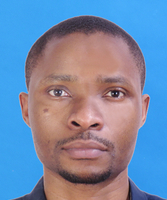
Rashid MKEMAI
YEAR OF MATRICULATION: 2001
EDUCATION:
UDSM’s search for its ‘Alumnus of the Month’ for August 2022 landed on one of the youngest, well-educated and trained engineers of the current century, returned from doctoral study overseas, by the name of Rashid Mkemai. He belongs to UDSM’s graduating class of 2005.
Rashid was born forty-three years ago, on 14th September 1979, in Ilala district in Dar es Salaam, and of working parents. His parents hail from Rufiji (Dad) and Morogoro (Mom), to which parental ethno-geographic origins he makes casual fond reference. Rashid had his primary education at Ufukoni Primary School, in Kigamboni, from 1987 to 1992. Thereafter, he was admitted at Azania Secondary School for ordinary secondary education (from 1993 to 1997). His school performance was so good that after the four years of ‘O-Level secondary education and earning a Certificate of Secondary Education Examination (CSEE), he proceeded to Tabora Boys High School for the next two years of advanced level study (1998–2000). He had such high performance scores in his ACSEE [Advanced Level Certificate of Secondary Education Examinations] in the science subjects—particularly in Maths, Physics and Chemistry—that he was selected for university entry at the University of Dar es Salaam, popularly referred to as UDSM.
At the University of Dar es Salaam, Rashid registered himself with the Faculty of Engineering [now College of Engineering and Technology], majoring in Mining Engineering. The undergraduate degree programme took him four years, from 2001–2005, earning for him a BSc. (honours) degree in Mining Engineering. Upon completing his degree study programme in 2005, Rashid Mkemai secured a job with a company Placerdome Tanzania Limited in Tarime district, Mara region [It was what is known today as Barrick Gold North Mara Mine]. He worked there as a mining engineer with responsibilities variously of short- and long-term nature, including mine planning, mine designing and production, as well as management and supervision in the mine. He worked for Placerdom [Barrick] for two years from 2005 to 2007 when he decided to join an engineering teaching career at the Dar es Salaam Institute of Technology (DIT). At DIT, he began as a tutorial assistant in mining and geotechnical engineering, a position he held until 2011, when he became Assistant Lecturer and served in that rank for about nine years (from 2011 to 2020). He was promoted to the rank of Lecturer in 2011 and was at the same time appointed head of the Mining and Oil and Gas Engineering Section.
In the five-year period before 2020, Rashid was in China on a full-time doctoral study programme at the Petroleum Engineering Laboratory of the China University of Geosciences (CUG) in Wuhan. He returned home to Tanzania on successful completion of the doctoral programme. It was, as it were, a culmination of a dedicated and honourable investment into five years of intellectual labour. His PhD research project at CUG was on the theme ‘Numerical Simulation of enhanced CO2 Storage in Confined Geological Formations’.
In the course of years, Rashid Mkemai has participated in a number of practical and professional activities that have helped not only in building his own career and expertise in a number of engineering areas but also in providing insights and solutions to certain national development problems. The activities include part-time lecturing at the College of Earth Sciences at the University of Dodoma (2012–2013) concerning the undergraduate programme in mining engineering, particularly underground mining and rock breakage courses (MN 303 and MN 205, respectively). Also, since 2013, Dr Mkemai has participated in professional development courses, including: ‘Mines ground control’ (at the Cambrian College International in Sudbury in Ontario, Canada in 2012); ‘Mining survey’ (also at Cambrian, in 2013); ‘Oil and gas training for trainers’ (in Bagamoyo, Tanzania in 2013); ‘Oil and gas curriculum development’ (at Nuffic in The Hague, Netherlands in 2014); ‘Training of trainers in curriculum development, delivery and assessment’ (at the National Council for Technical and Vocational Education and Training, NACTVET in April 2021); and ‘SO21001:2018 Certification’ at the Tanzania Bureau of Standards, TBS (in January 2022).
Dr Mkemai has produced a number of works in the form of journal articles. They include ‘TPM framework for underground mobile mining equipment: A case study’ (2011); A modelling and numerical simulation study of enhanced CO2 sequestration into deep saline formation’ (with B. Gong)’ in Mitigation and Adaptation Strategies for Global Change (2019); and ‘Geological performance evaluation of CO2 sequestration in depleted oil reservoirs’ (with B. Gong) in Journal of Natural Gas Science and Engineering (2020). Also, he has written a number of consultancy reports for various clients in relation to rock investigations, ground testing, geotechnical laboratory tests and numerical simulations. The University congratulates him warmly for the stage he has reached on his way up in his mining engineering professional journey. Pictures below are illustrative of his seriousness!

